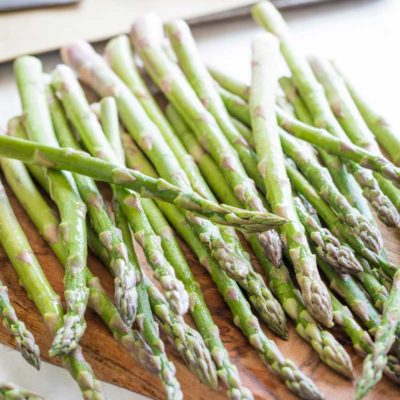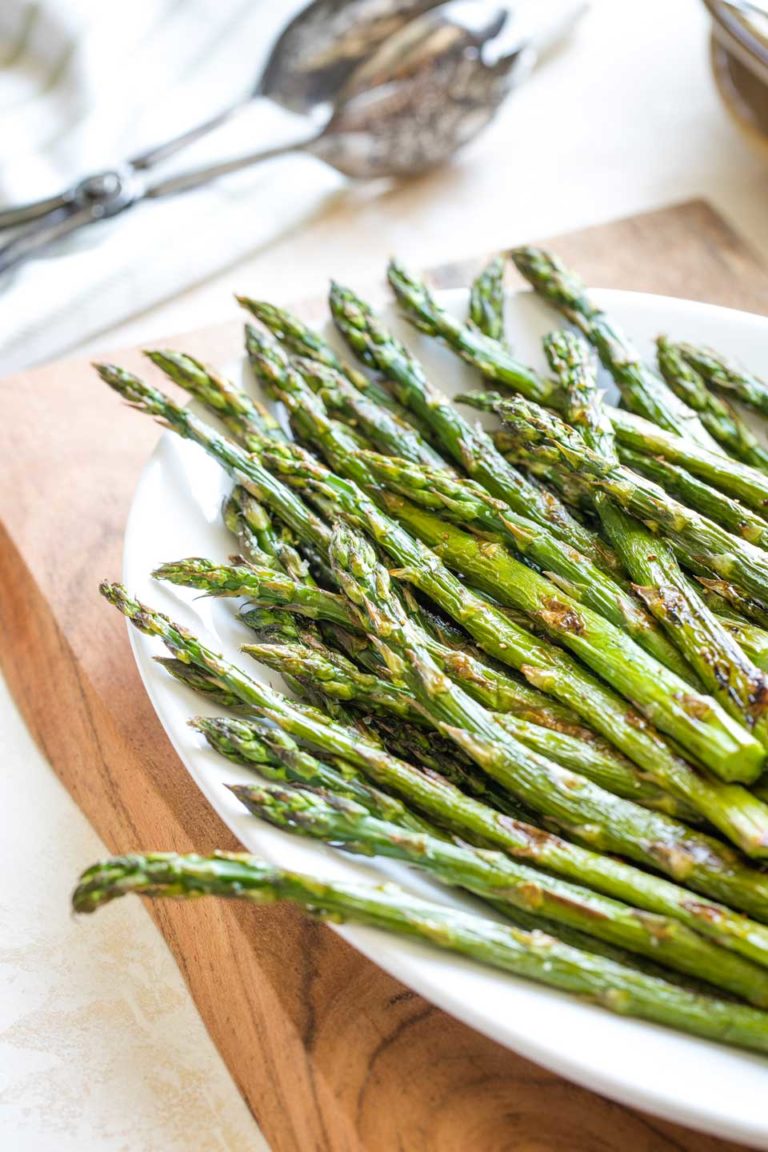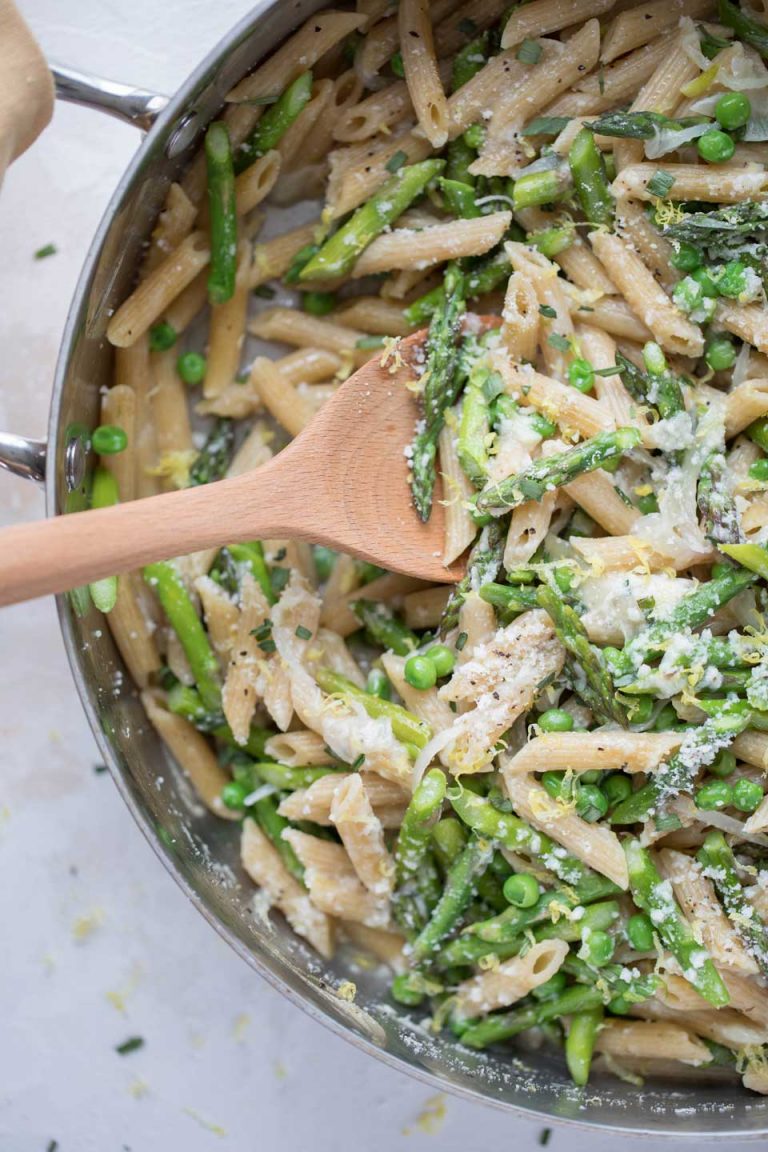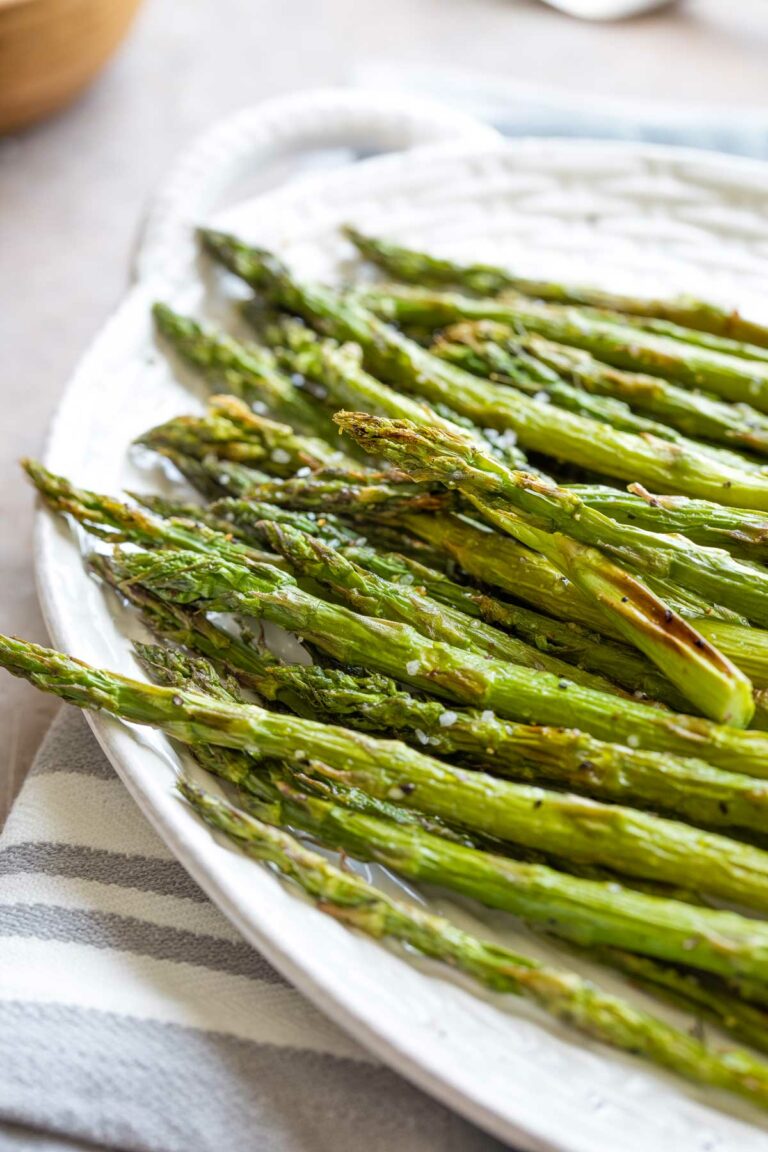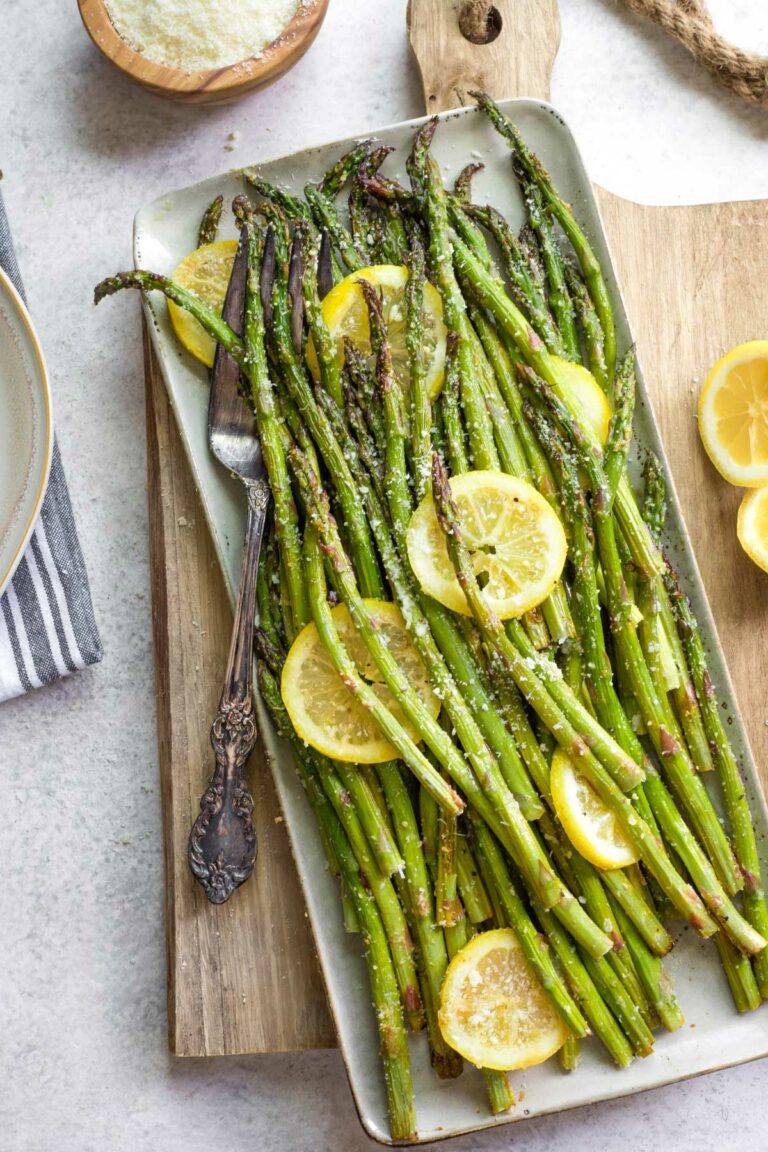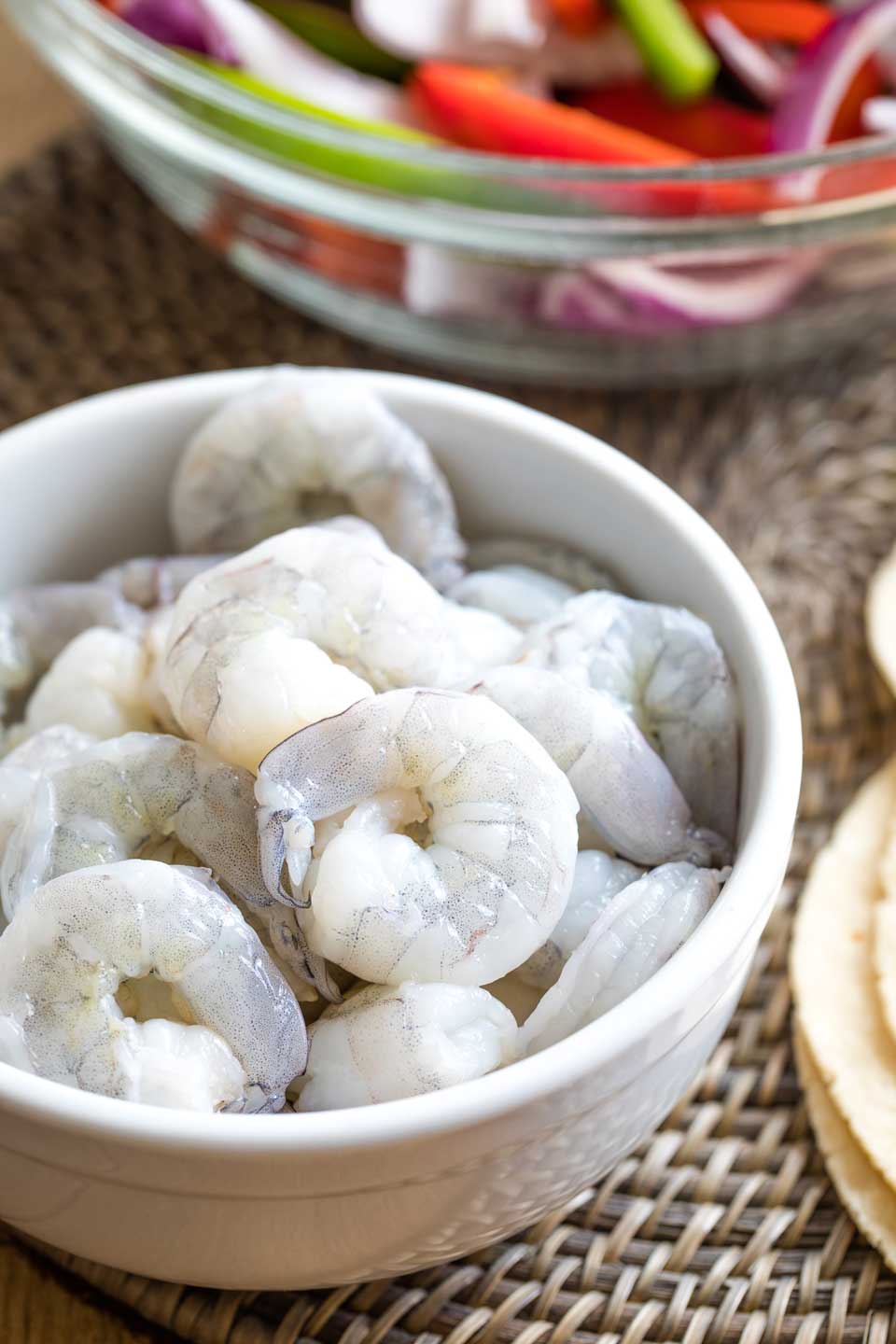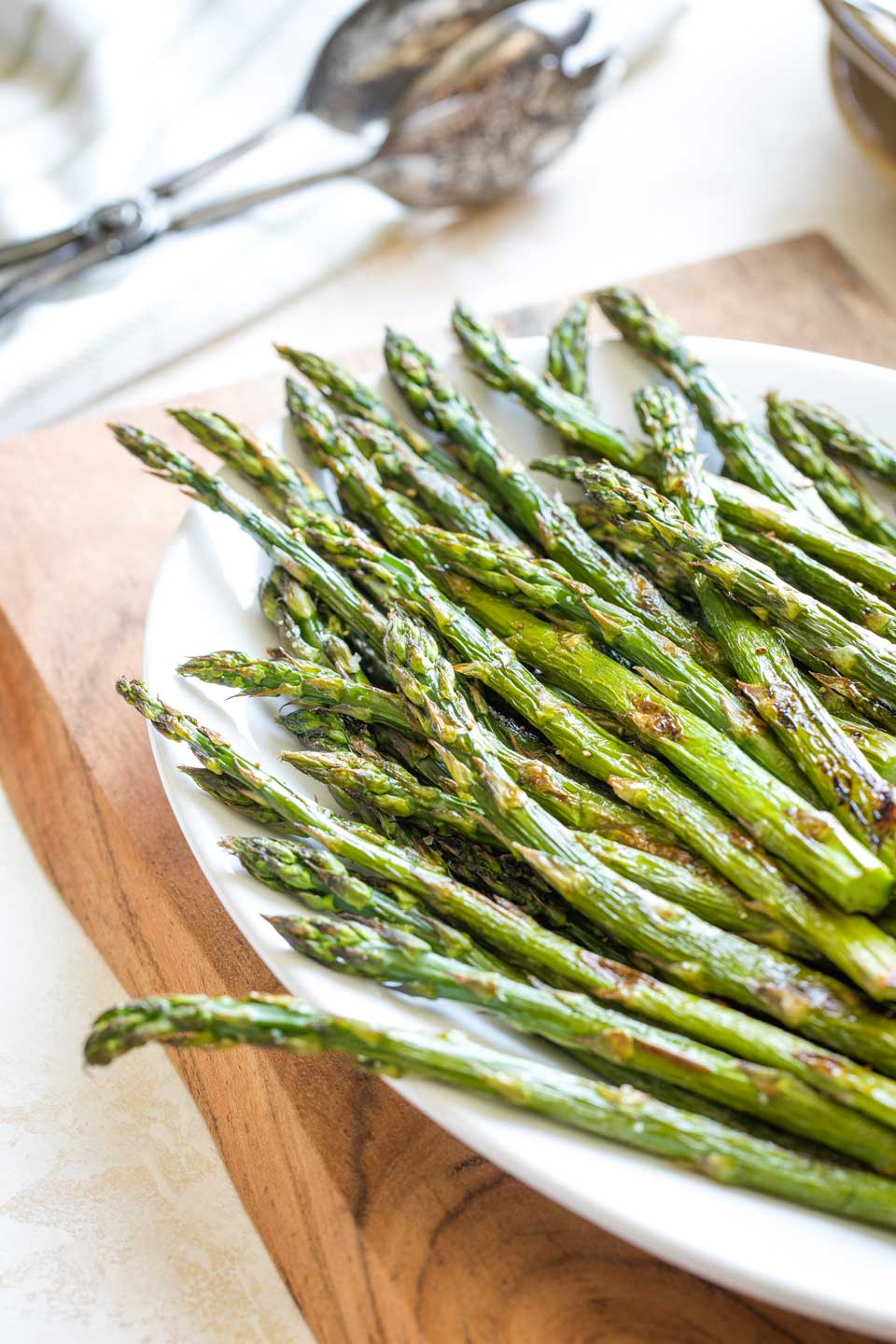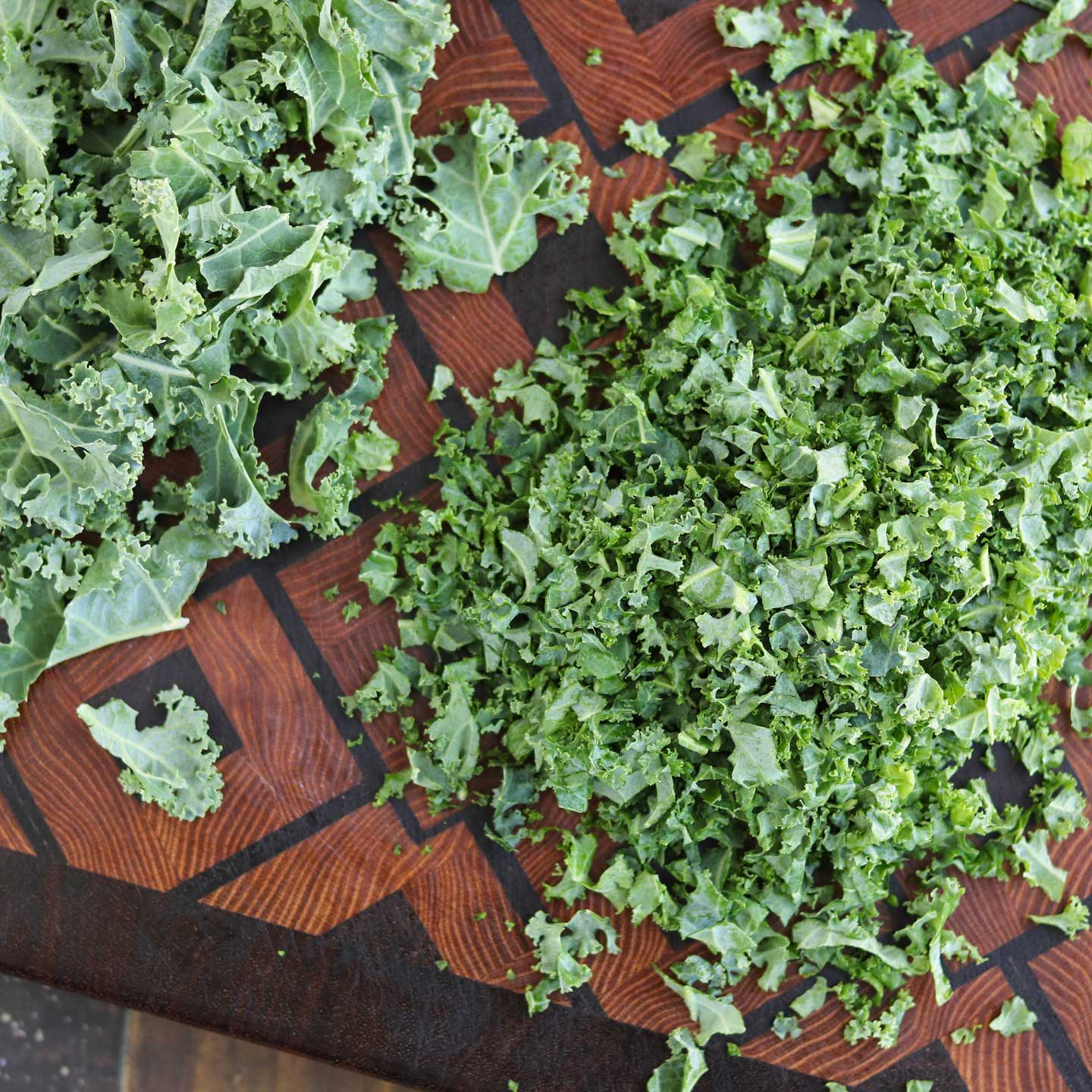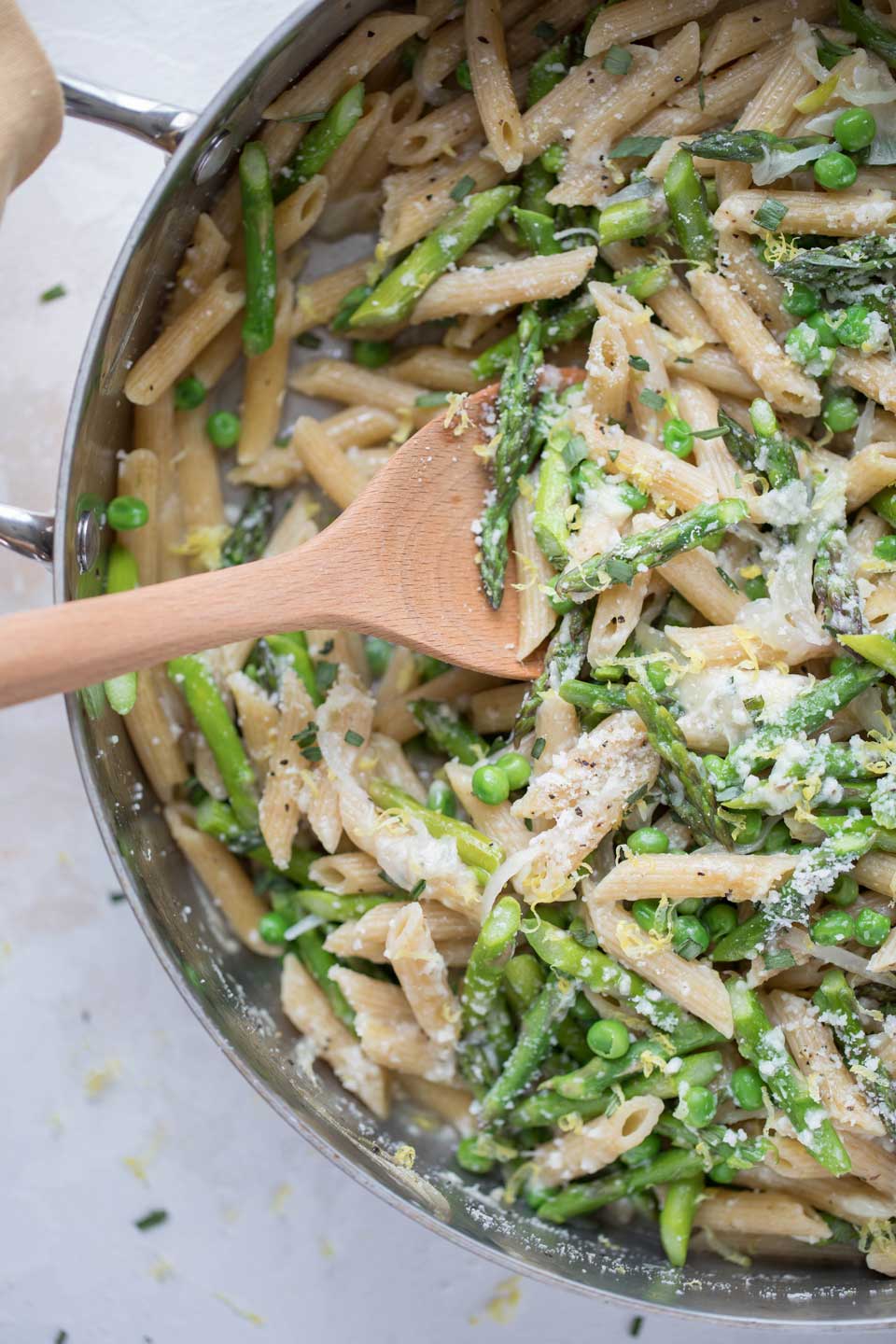How to Buy Asparagus at Its Very Best
~ Wondering how to buy asparagus that’s as fresh and delicious as possible? We’ve got 3 specific tips for choosing asparagus, plus info on whether to buy thick or thin stalks. And, suggestions for how to store asparagus once you get it home! ~
I buy a lot of asparagus. It’s one of those things I throw in my cart practically every time I’m at the grocery store.
After doing loads of own my research … and my own trial-and-error experimenting, I’ve learned plenty of little tips and tricks that help me buy the very best asparagus.
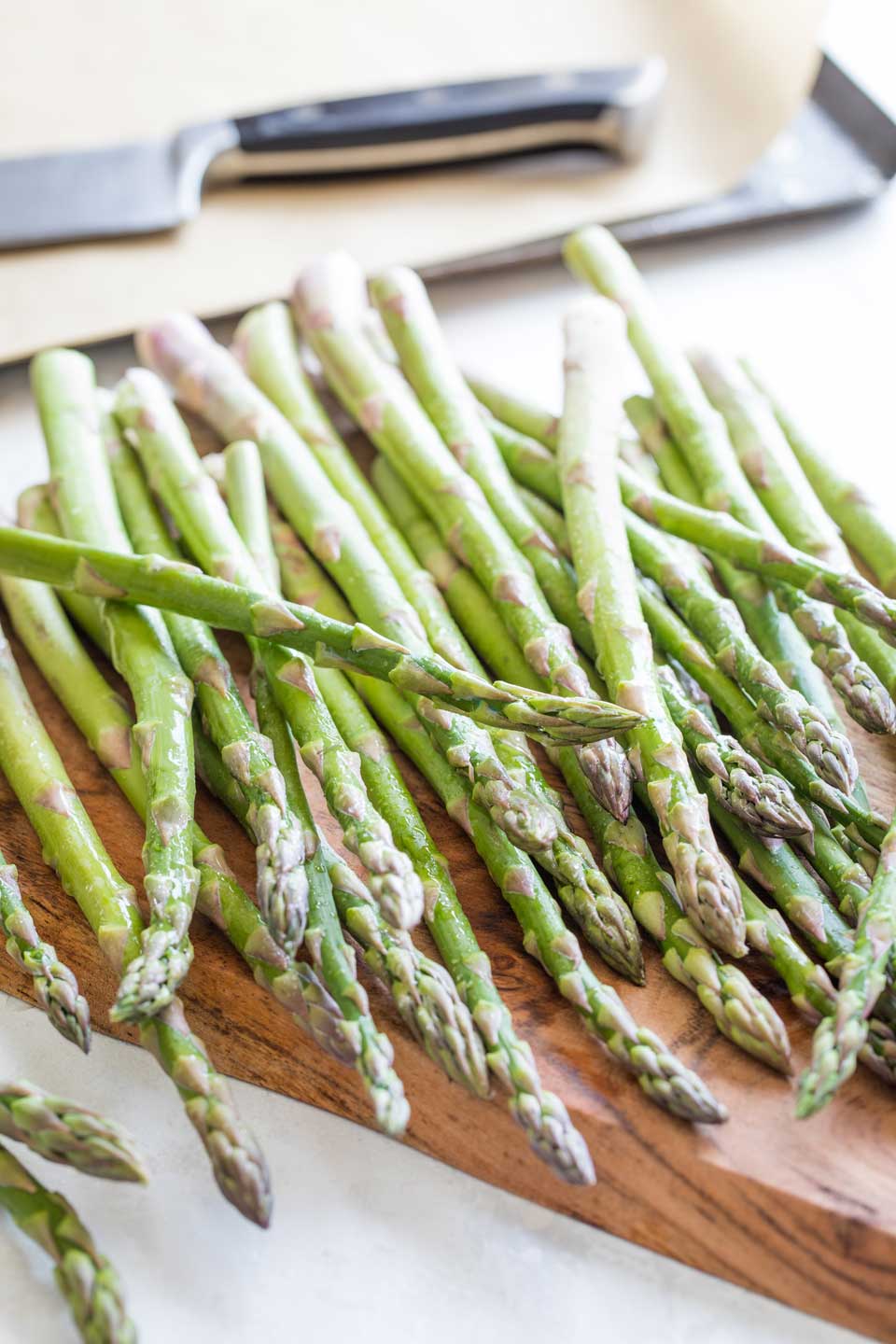
I can pretty much tell at first glance – right as I’m standing in the store eyeballing the rubber-banded bunches – if it’s going to be a fabulous batch, or only kinda meh.
Here’s how I can tell … and how you can, too:
How to Buy Asparagus That Won’t Disappoint
When you’re choosing asparagus, there are 3 specific things to check, to help you make sure you’re buying the very best you can: the condition of both the stalks and also the tips, as well as how your store has stored and presented the asparagus.
And, spoiler alert: there’s also one key trait that’s a lot less important than most people think.
#1: The Stalks
Look for firm stalks. They shouldn’t be dried out or wrinkled. And, they shouldn’t be rubbery, soft, limp or leathery.
#2: The Tips
Next, check out the asparagus tips. They should be tightly closed and fresh-looking. Skip any that look frazzled, dry, or that are starting to open. And definitely pass on any that are mushy or slimy.
In short, really great asparagus should be as fresh as possible.
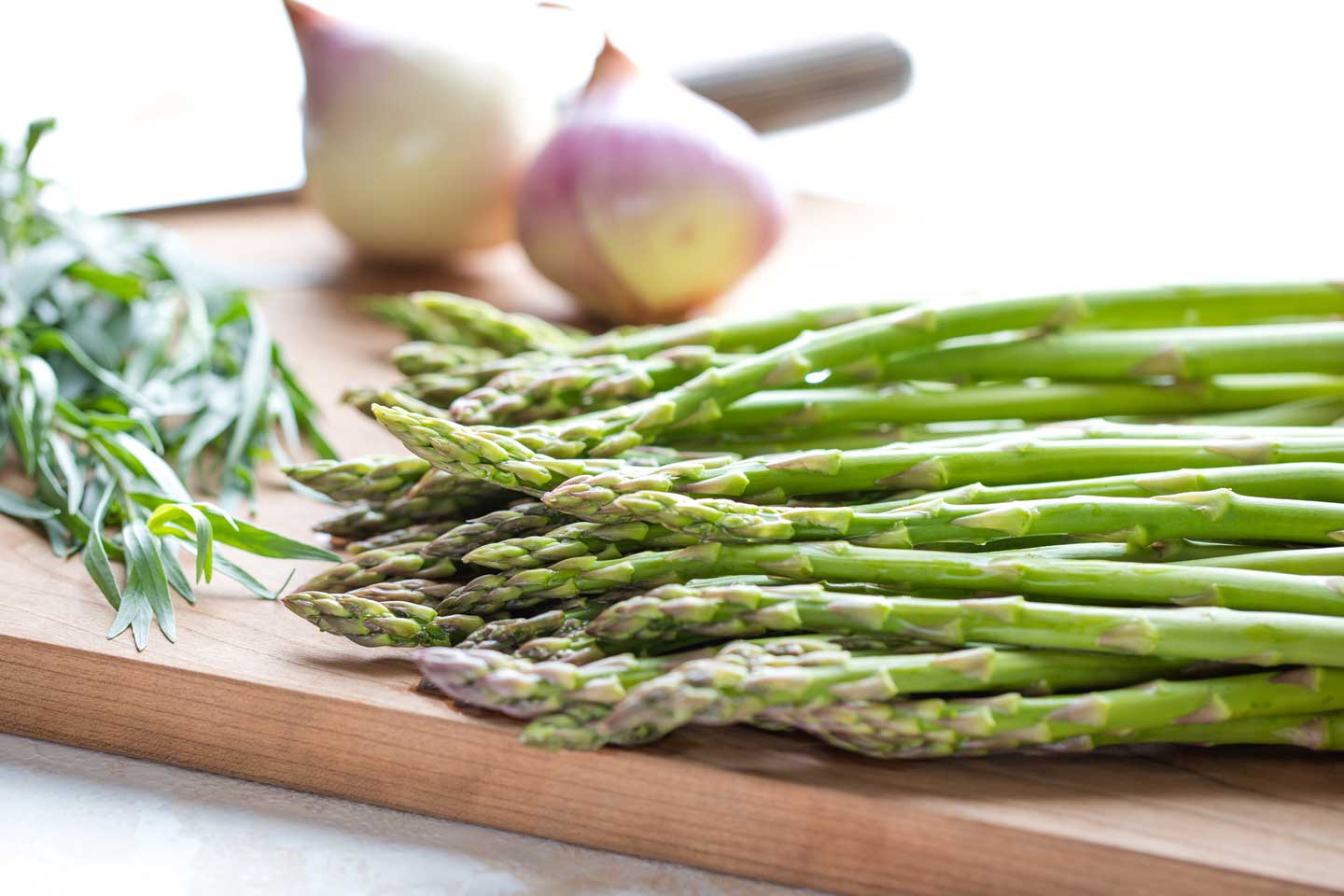
As The Spruce Eats explains, the sugar in asparagus begins to turn to starch after the asparagus is picked, so you want to enjoy this veggie as close to that picking moment as you can.
The Kitch’n also mentions something that’s particularly important if you hate food waste (or wasting money): the longer asparagus has been sitting around, the more of its ends are going to be dried out and will need to be cut off … resulting in less asparagus for you to enjoy.
Which brings us to the third thing to look for in choosing asparagus:
#3: The Presentation
Have you noticed that most grocery stores keep the ends of the asparagus moist?
Usually, the asparagus is actually sitting in little troughs of water, almost like a bouquet of cut flowers. That’s actually a good thing, and there’s a reason that stores go to the trouble to present and sell asparagus that way.
It keeps it fresher longer!
The poor little bunches of asparagus in the photo below are sitting in grocery store trays that are totally dried out, with no water to keep the asparagus moist. Not surprisingly, you can see that the tips are starting to look dry and frazzled. *Sad*
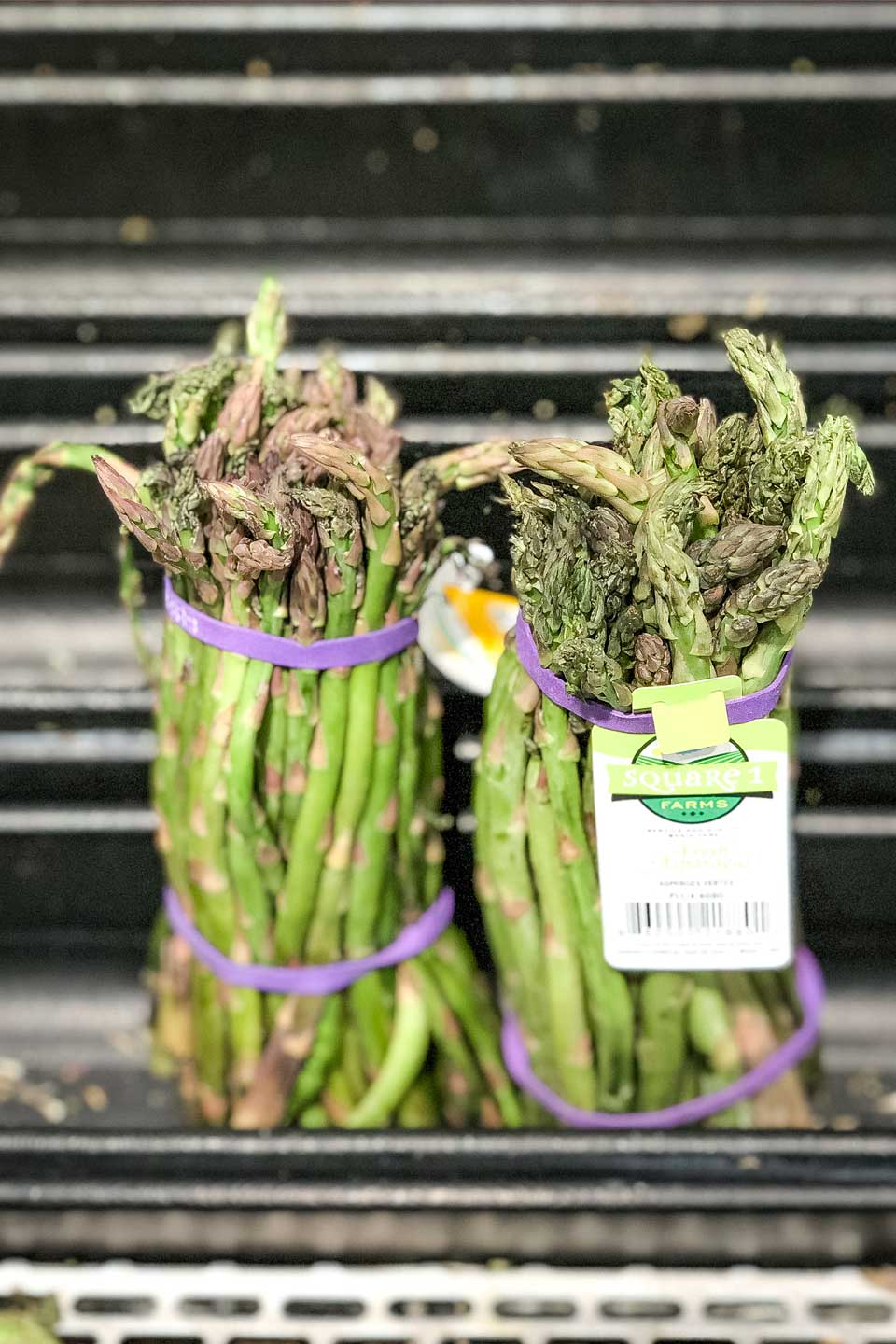
With no water in their troughs to keep them hydrated, the tips of these asparagus spears are looking dry and frizzly. Not a good sign!
And, you can see that the bottoms of the stalks are wrinkled, dried out and rubbery.
See those wrinkly, dehydrated ends?
Trust me on this … walk away FAST!
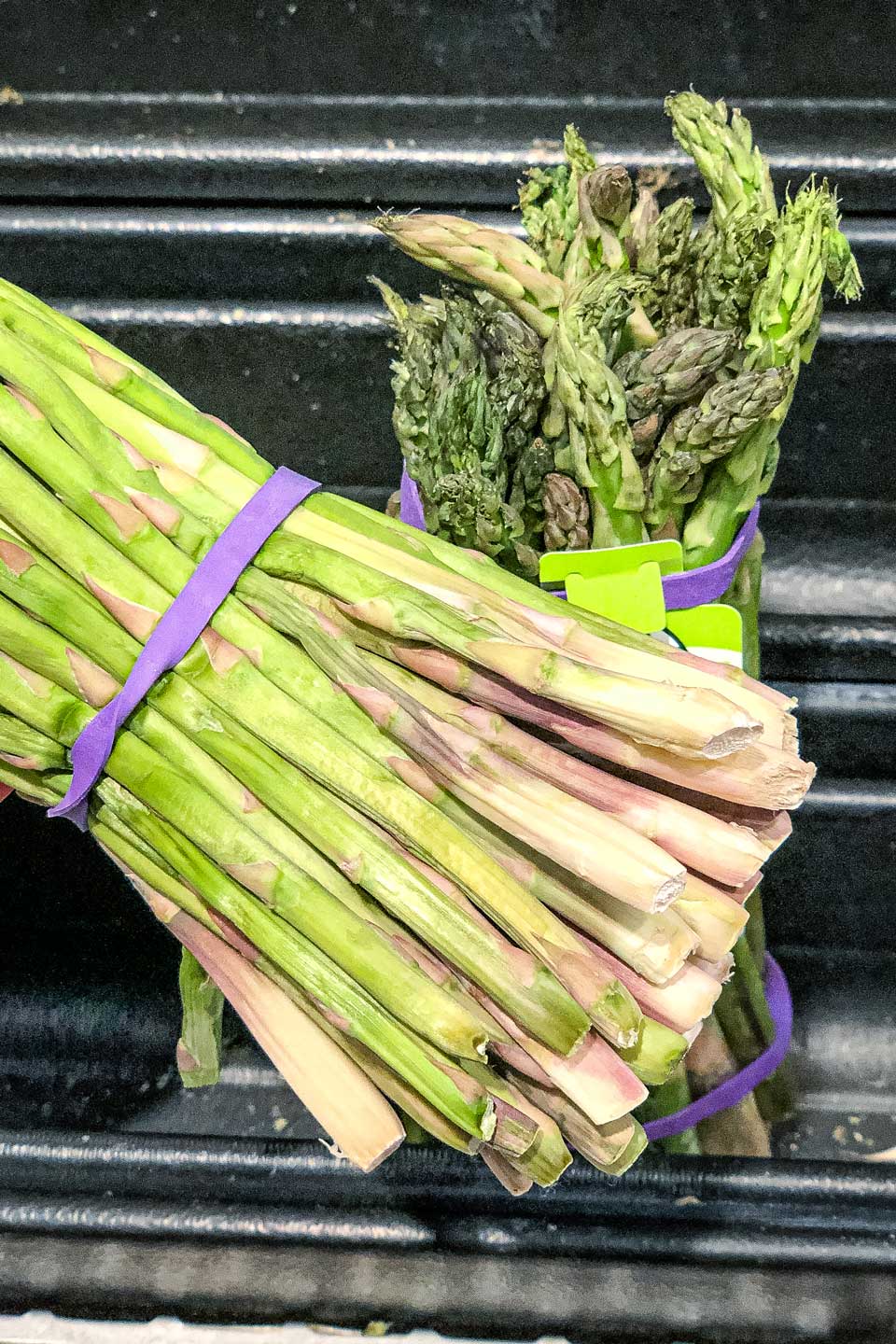
Always buy asparagus that’s been stored and presented in a way that keeps the cut-ends moist … just as you would with floral bouquets.
(Pssssst … this also gives you a huge hint about how you should store your asparagus after you get it home, too! More on that in a moment …)
Is the Most Tender Asparagus Thick or Thin?
Ah, here’s the real debate, right? This is that “spoiler-alert” trait I mentioned earlier … the thing that matters much less than most people think.
As I discussed in my post for my beloved Oven Roasted Asparagus recipe, there’s really no right or wrong answer here. It’s mostly just a question of personal preference.
Real Simple explains it perfectly: “Size isn’t an indicator of quality or flavor; thick asparagus is just more mature than the thin variety … both can be sweet and tender, as long as they’re fresh.” (Notice we’re coming back to that key point about freshness here!)
I personally prefer to buy asparagus that’s thinner to medium-thick at most, although generally no thinner than a pencil. This is especially true when I’m roasting the asparagus (which is how I normally cook it).
Why?
Well, because I prefer to choose asparagus that will still have a bit of crispness and won’t be too softened or mushy after cooking. And, surprisingly, thinner stalks tend to stay firmer.
Seems backwards, right?
But, as Michigan State University’s Extension Service explains, after cooking, thinner stalks are firmer than thick ones because the fibers of thinner stalks are more closely packed together. Interesting!
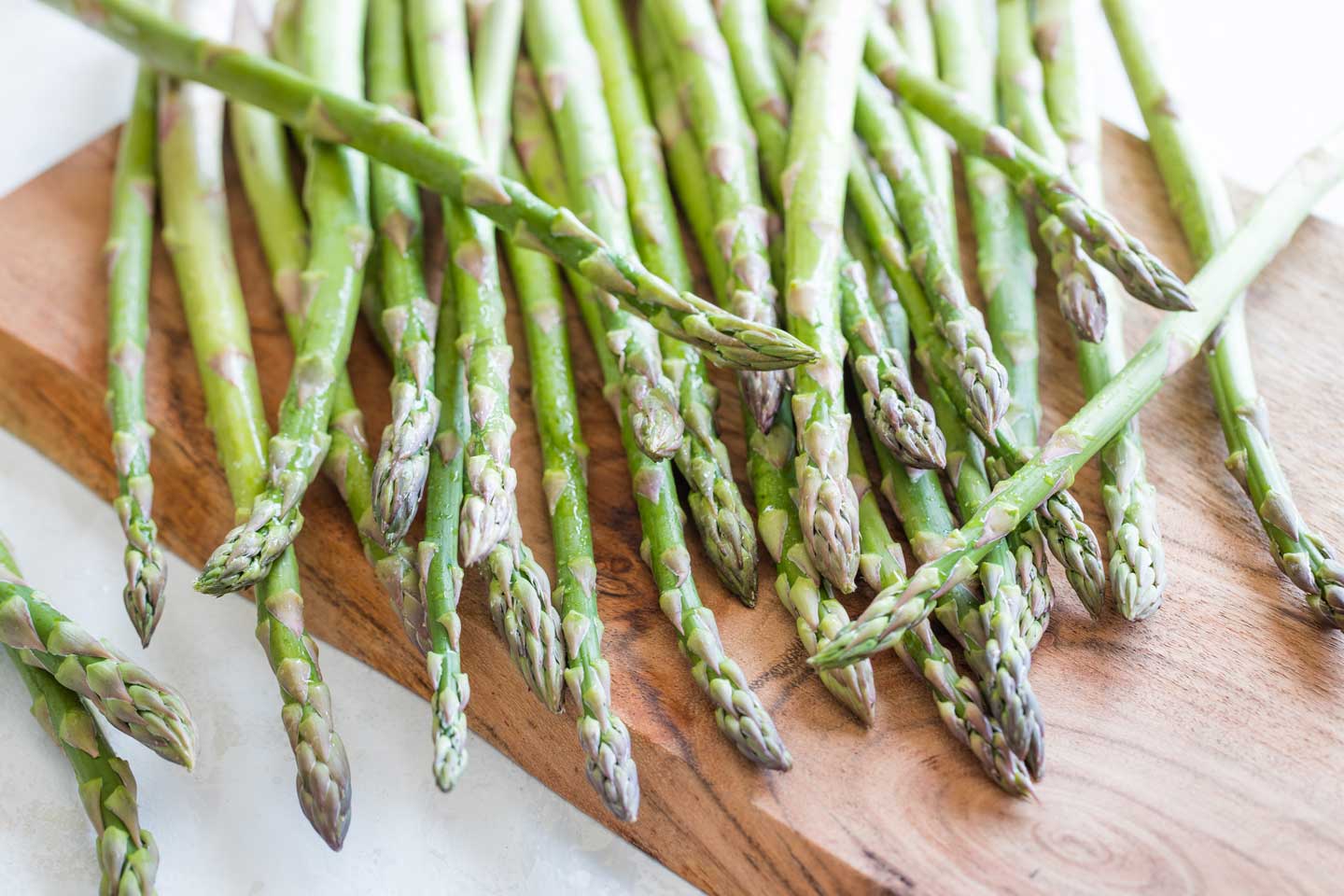
The bottom line here is that the thickness isn’t as important in choosing asparagus as freshness is.
How to Store Asparagus at Home
The best advice here is to use your asparagus as soon as possible. The clock is ticking, and its natural sweetness is turning to starch as it waits for you to cook it up.
But if you don’t shop every day or two (I certainly don’t) and need to plan ahead a bit, you can definitely keep asparagus in pretty good shape in your fridge for several days after you buy it.
Remember that I mentioned earlier that you should buy asparagus at stores that keep the cut-ends moist for you? Yup … just keep that going once you get it home, too.
At the very least, wrap the cut-ends in some damp paper towels.
Or, even better, treat that asparagus like it’s a gorgeous rose bouquet.
Snip off the bottom inch or so from all the stems.
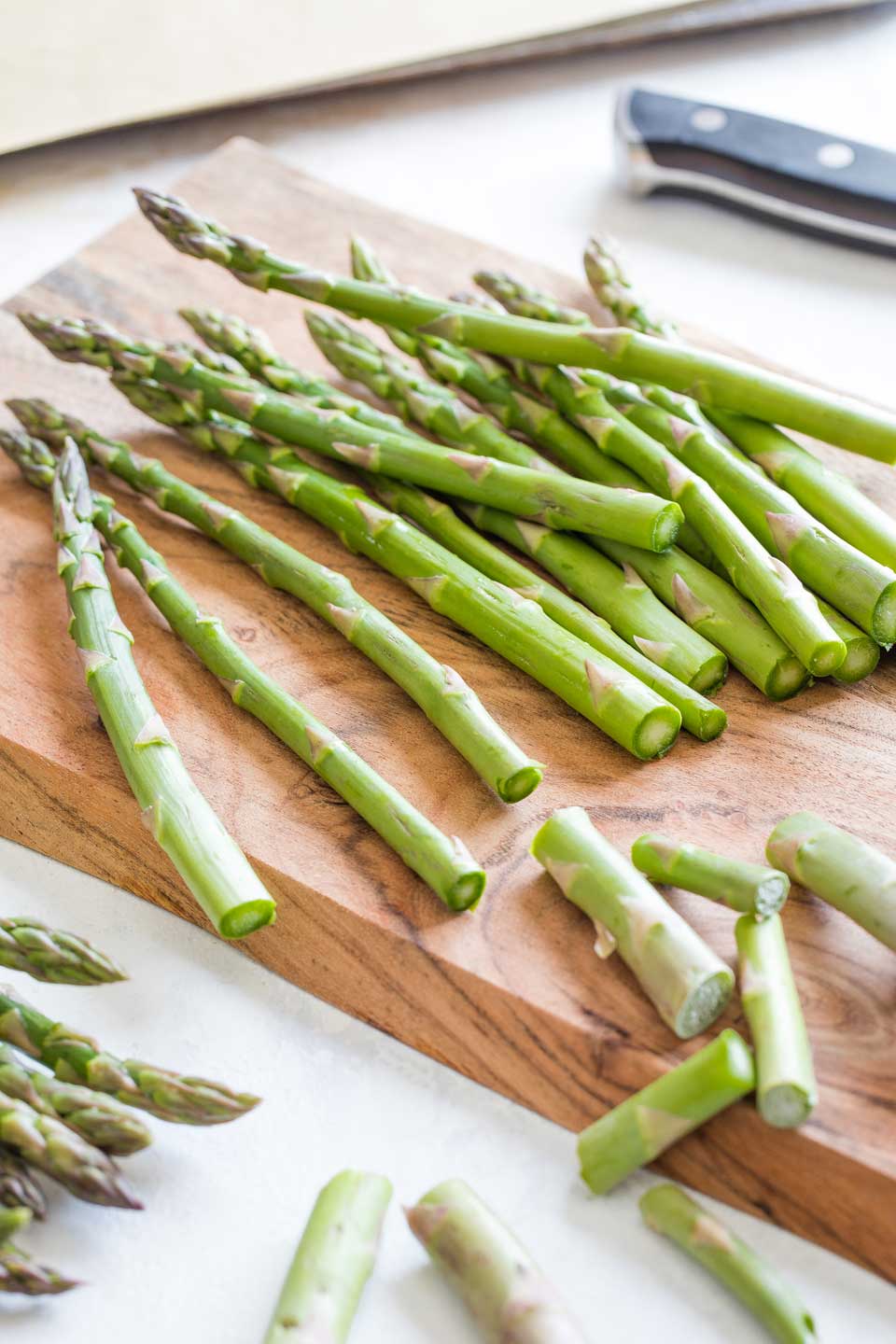
Then, place the asparagus in a wide-mouthed jar or drinking glass filled with water. And, stash your yummy “bouquet” in the fridge!
It can also be a good idea to loosely cover the tips in plastic wrap, to keep them from drying out, especially if it’s going to be more than a day or so until you’ll be using it.
And now for the big finale (ta-da!!) … now that you’ve learned how to buy asparagus that’s top-notch, and how to keep asparagus fresh as can be … now you need …
My Favorite Asparagus Recipes
Alrighty!
Dash to your store, and grab up that gorgeous, perfect asparagus bundle (you’ll know just what to look for!) … and get cookin’!
Delicious asparagus awaits …

